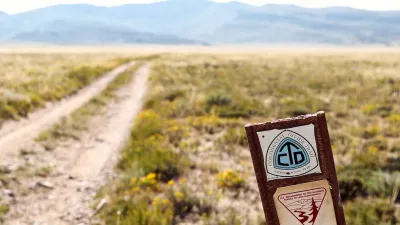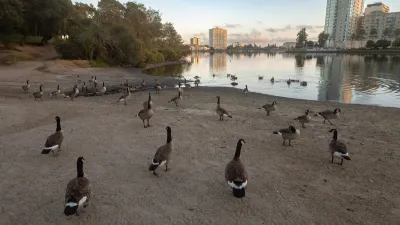Researcher Chris Ives suggests that rather than relying solely on economic gains to justify urban nature and biodiversity, community values may be more effective in gaining public support.
Chris Ives shares his insight on matching community's values to urban nature. Citing examples from Australia, he argues, "Beginning with an understanding of what people value and why, urban nature can be embedded more closely into the life of a city, rather than being presented as an alternative issue that only resonates with the environmentally conscious few."
The "current paradigms of decision-making [is] (often based on economic values and balancing fiscal budgets)." But, a "values based" approach challenges this convention by asking: "What if we started from the place of what people value, and then looked at how the environment contributes to this?" In this manner, a "values based" approach emphasizes the "interactions between people and their environment and landscape" rather than starting with "properties of a[n] [eco]system (which may exist whether or not people are present!)."
Ives encourages connecting with the psyche of communities versus relying solely on economic gains to justify urban nature policy: "The relationship between underlying human values and assigned values (those specific to a place or landscape) is very important when considering how to promote nature in the city. Although sustainability and biodiversity conservation are important issues for many people, the matters that are of greatest value to people are generally not environmental…Knowing the priorities of the general population is a useful way of connecting the composition and function of natural areas in cities to the matters that concern people the most."
FULL STORY: A Values-Based Approach to Urban Nature Research and Practice

Alabama: Trump Terminates Settlements for Black Communities Harmed By Raw Sewage
Trump deemed the landmark civil rights agreement “illegal DEI and environmental justice policy.”

Planetizen Federal Action Tracker
A weekly monitor of how Trump’s orders and actions are impacting planners and planning in America.

The 120 Year Old Tiny Home Villages That Sheltered San Francisco’s Earthquake Refugees
More than a century ago, San Francisco mobilized to house thousands of residents displaced by the 1906 earthquake. Could their strategy offer a model for the present?

Ken Jennings Launches Transit Web Series
The Jeopardy champ wants you to ride public transit.

BLM To Rescind Public Lands Rule
The change will downgrade conservation, once again putting federal land at risk for mining and other extractive uses.

Indy Neighborhood Group Builds Temporary Multi-Use Path
Community members, aided in part by funding from the city, repurposed a vehicle lane to create a protected bike and pedestrian path for the summer season.
Urban Design for Planners 1: Software Tools
This six-course series explores essential urban design concepts using open source software and equips planners with the tools they need to participate fully in the urban design process.
Planning for Universal Design
Learn the tools for implementing Universal Design in planning regulations.
Clanton & Associates, Inc.
Jessamine County Fiscal Court
Institute for Housing and Urban Development Studies (IHS)
City of Grandview
Harvard GSD Executive Education
Toledo-Lucas County Plan Commissions
Salt Lake City
NYU Wagner Graduate School of Public Service





























